Course:
GEOG 547 / GEOS 547 (3 units)
Instructors:
Katie Hirschboeck
(LTRR) & Joellen Russell (GEOS) |
Spring 2016
Tu & Th 11:00 am -12:15 pm
Bannister 110 |
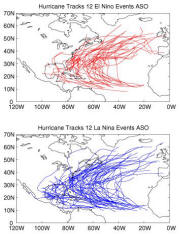 |
COURSE
PHILOSOPHY
Synoptic
climatology is "the
study of climate from the viewpoint of its constituent
weather components or events and the way in which these
components are related to atmospheric circulation at all
scales."
Harman & Winkler 1991
The guiding philosophy of
the course is that to understand past or future climatic
variability anywhere in the world, one must be grounded in
an understanding of present global and regional climate
dynamics from the viewpoint of the constituent weather
components or events that combine spatially and temporally
to produce these dynamics. |
|
COURSE DESCRIPTION
The
goal of this advanced course in climatology is to equip
graduate students in the earth, atmosphere, hydrologic and
environmental sciences with a comprehensive
understanding of
how
global and regional weather patterns and atmospheric
circulation processes interact to produce unique and varying
climates worldwide. This
course builds on presumed background knowledge of "the
climate system" by applying a synoptic meteorological
and climatological approach to analyze and explicate the
complexity of climatic patterns and processes from continent
to continent across the globe.
|
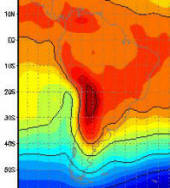 |
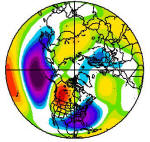 |
The
organizing framework for the course is an emphasis on the
interactions between global atmospheric processes and
regional climatic responses as they are manifested in
synoptic-scale features and processes in different parts of
the world.
In
addition to a general overview of global atmospheric
processes and regional climatic patterns, the course will
address the earth's "problem climates"
1
and
climatically sensitive zones that are most susceptible to
floods, droughts, and other climatic extremes.
|
|
Online
data resources will provide the basis for an
up-to-date
technical analysis of regional weather and climate patterns.
Using
Interactive Plotting and Analysis Pages,
Reanalysis
Data, and other gridded
datasets we will create visualizations of climate variables
and synoptic circulation patterns in order to probe and
deconstruct classic "textbook" explanations of global and
regional climate from a process-based perspective.
|
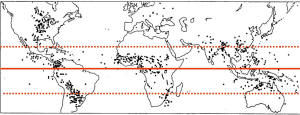 |
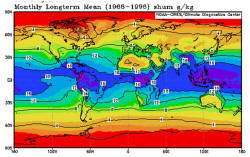 |
Graduate students
in geography, hydrology, geosciences, atmospheric sciences,
global change, natural resources, environmental sciences,
arid lands and other related areas are welcome
— especially if your
research involves the study of past, present or future
climatic variability in locations throughout the world. The
prerequisite is
an
upper division climatology or meteorology course (e.g. GEOG
530 or equivalent). Contact the
instructors to
inquire about other suitable prerequisites. |
|
COURSE OBJECTIVES
(1) to
provide an in-depth treatment of the
causes
of regional weather and climatic patterns and processes
in terms of synoptic atmospheric circulation patterns.
(2)
to examine and analyze
regional examples of processes
driven by the energy and moisture fluxes at the global scale
(3)
to provide the climatic basis
for a critical evaluation of some of the most urgent
regional climate‑related
extreme-events facing us today;
especially floods and droughts
(4)
to provide a sound
climate-based foundation
for the analysis of climatic
environments of the past and/or future
and a physical basis for the interpretation of climates in
different parts of the world using indices, modeling and/or
paleoenvironmental techniques
|
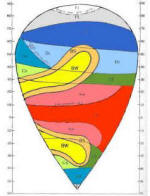 |
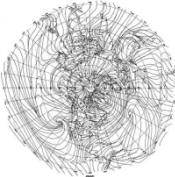
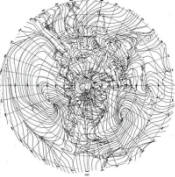 |
COURSE FORMAT
-
Readings will be drawn from
textbook selections, journal articles, and online
sources.
-
Hands-on computer-based
applications of online resources and datasets will
augment the readings.
-
In-class and homework exercises
will involve the use of the reanalysis data and interactive
plotting and analysis pages to construct and explore
circulation patterns and processes in different parts of
the world. In class we'll share our "Electronic Atlas" plots, compare and
contrast the patterns, and evaluate whether or not they
fit "textbook" or journal article explanations of what
is "supposed to be" driving regional climate patterns.
- Background self tests and a
midterm exam will address
introductory climate basics and allow a self-paced
synthesis and application of the course concepts
- Each student
will complete a term project.
This could be a circulation-based climate webpage for a
particular continent, a detailed regional climatic
analysis of a particular area, or some other exploration
of global or regional climate along the lines of an
expanded Electronic Atlas.
|
1 "Problem climates"
as defined in the
classic global climatology text:
The Earth's Problem Climates
by Glenn T. Trewartha, 1981 Univ of Wisconsin press.
TENTATIVE CLASS
SCHEDULE
|
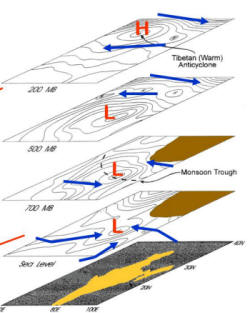 |
| Week 1 |
Introduction &
Overview |
|
Global Processes Background |
| Week 2 |
Radiation & Energy
Patterns / Temperature Patterns |
| Week 3 |
Global
Circulation/ Moisture & Precipitation Patterns |
| Week 4 |
Scales of
Atmospheric Processes /Synoptic Weather Patterns |
| Week 5 |
Model Data +
Electronic Atlases / Modes of Climatic Variability |
| |
Climate & Weather of the Continents |
| Week 6 |
Global
Climate Regions Overview / South America I |
| Week 7 |
South America II / North America I |
| Week 8 |
North America
II / Electronic Atlas
Presentations |
| Week 9 |
Africa I /
Africa II |
| Week 10 |
Spring Break |
| Week 11 |
Europe I /
Europe II |
| Week 12 |
E-Atlas Presentations
/ Southern Asia |
| Week 13 |
Southeast Asia
/ Eastern Asia |
| Week 14 |
E-Atlas presentations
/ Southern Ocean + Polar Regions |
| Week 15 |
Oceania /
Project Pracitcal Help Day |
| |
Term Project Presentations |
| Week 16 |
Project
Presentations / Porject Presenations |
| |
|
For more
information contact:
Dr. Katie
Hirschboeck Dr.
Joellen Rusell
Laboratory of Tree-Ring Research
Department of Geosciences
katie@ltrr.arizona.edu
jrussell@email.arizona.edu
|